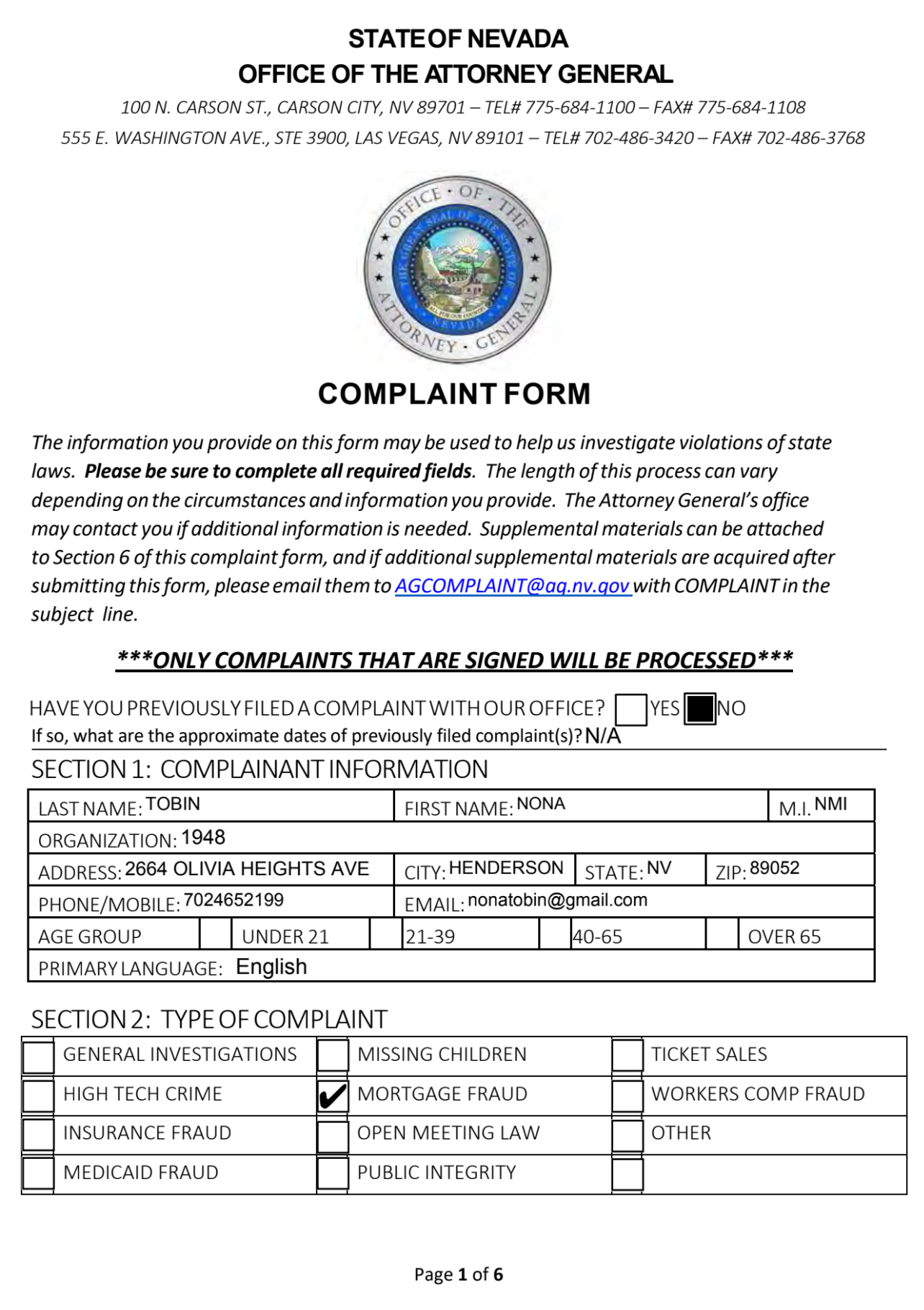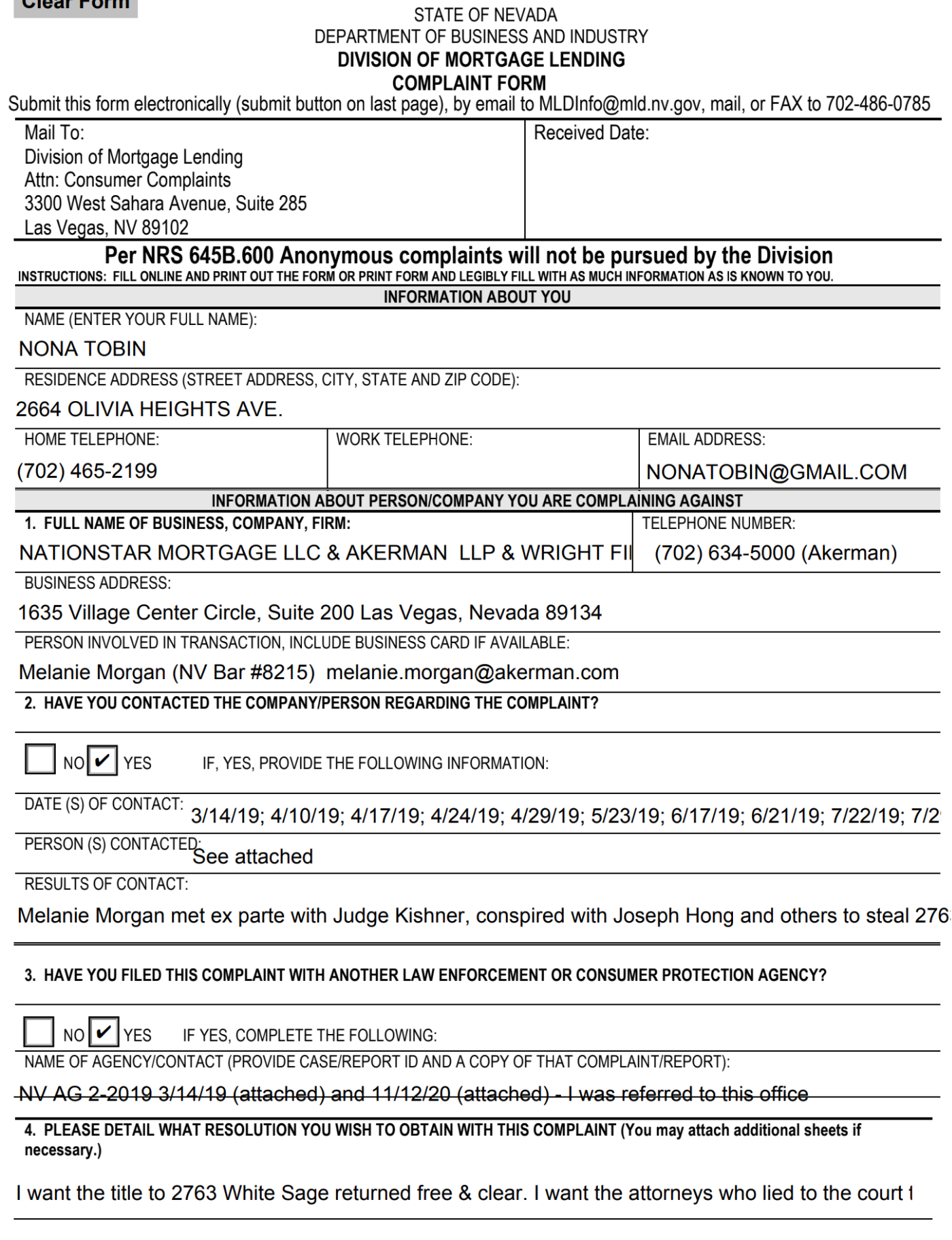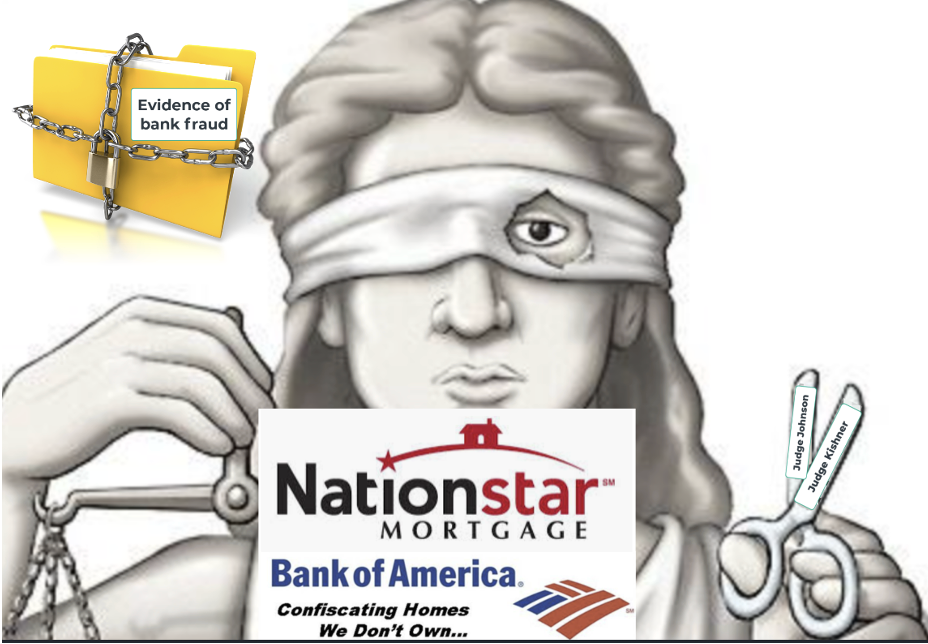Due process is required before a person’s property can be confiscated
Excerpt from page 2 of Nationtar’s 5/10/16 filing into A-15-720032-C According to Nationstar’s attorneys, Nona Tobin is NOT entitled to due process before her property
Owners should ALWAYS come first!
Excerpt from page 2 of Nationtar’s 5/10/16 filing into A-15-720032-C According to Nationstar’s attorneys, Nona Tobin is NOT entitled to due process before her property
Joseph Hong (NV Bar #5995) filed written false statements, filed frivolous unsupported harassing pleadings, knowingly made false verbal statements, made fraudulent misrepresentations of material facts,
I, Nona Tobin under penalty of perjury, states as follows: I have personal knowledge of the facts stated herein, except for those facts stated to
Link to 2020 court hearings Part 1 Link to 2/16/21 online complaint receipt to the Nevada Bar vs. Brittany Wood Link to Complaint OBC21-0187 vs.

Links to exhibits to 2nd complaint to the Nevada Attorney General 12/1/14 Assignment Nationstar – no power of attorney – executed B of A to

Links to Exhibits to 3/14/19 complaint to the NV Attorney General 2011 Certified fraud examiner Amicus curiae MA Supreme Court 7/15/2004 Western Thrift Deed of

Table of Contents of Exhibits

A Simple Fable: Jimijack and Nationstar weaponize settlement The Scheme In April, 2019, conspirators Joseph Hong and Melanie Morgan covertly devised a scheme to “resolve

Fraud on the court video playlist Judicial Jiu-Jitsu You-Tube channel
Postpone formal charges vs. Judge Kishner Link to PDF of 3/10/21 email to NCJD requesting postponement of formal charges Address the need for state civil